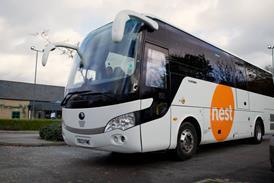Four in 10 schemes hit derisking triggers in the year to September as funding levels recovered and institutional investors looked to take risk off the table.
A survey of more than 120 pension schemes from consultancy Aon Hewitt, released today, found more than 40 per cent hit derisking triggers as their investment returns improved.
But there is debate over the value of these triggers to pension schemes’ derisking strategies, depending on how they are set up and whether they are worked into a useful governance structure.
Of the schemes with triggers that were surveyed, 41 per cent automatically trigger a derisking deal, 31 per cent simply trigger a discussion, and 29 per cent are “semi-automatic”.
“[That means] they trigger a process which is intended to result in a rapid switch,” said Aon Hewitt partner Paul McGlone, “but there is an opportunity, usually very limited in time, for trustees to confirm or reject the switch.”
Choosing the right triggers
The proportion of semi-automatic triggers increased by 11 percentage points from 2012, with manual triggers reducing by nine percentage points.
Emma Watkins, partner at consultancy LCP, questioned the value of manual triggers if schemes did not have the governance structure in place to take advantage of the opportunity.
But she added: “The risk of having an automatic trigger is that you end up doing something that you could have done better if you had held on for a little while.”
There is not yet consensus among the industry on the right type of trigger to use, due to the scheme-specific nature of the derisking process.
"Manual triggers give trustees the opportunity to debate the issue and consider the specific circumstances that exist at the time, but that can result in delays and missed opportunities," said McGlone, adding: "Opportunities can have ended before trustees discussions have begun."
The total deficit of FTSE 350 pension schemes stood at more than £400bn at the beginning of the year, but had reduced to well under £300bn by December, according to Aon Hewitt figures.
Karen Heaven, a director in the investment consulting team at Redington, said non-automatic triggers can provide "comfort" to schemes on governance.
"[It] is workable as long as any discussion happens sufficiently quickly, and importantly, that the participants understand the scope of the decision they are being asked to take," she said.
"In order to facilitate a timely process, it can be helpful to have a small subcommittee to make the trigger decisions."

























